12 Apr 2021
A New Vision for Rural Areas: ROBUST Takes Part in Rural Vision Week
A new vision for the future of rural areas in the EU is underway, spurred onward by ENRD’s recent…
How can public infrastructure and services be delivered equitably?
Public infrastructure and services, such as health care, transportation, and education, are cornerstones for the well-being of citizens. Changes in the technology, access and demand for these services imply a re-thinking of rural-peri-urban-urban boundaries and include new models of service provision. This raises questions about equitable access, fair assessment, representation and compensation of rural and urban needs and interests.

Theresia Oedl-Wieser (BABF), the leader of ROBUST’s Community of Practice on public infrastructure and social services, shares some details on the subject in an interview.
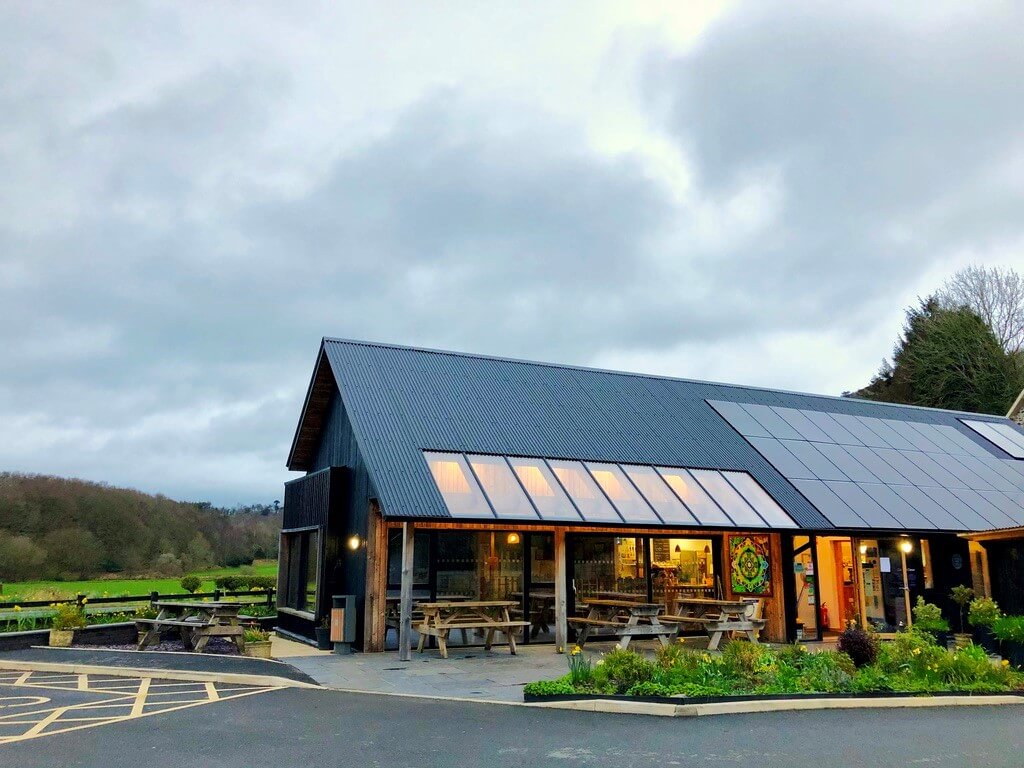


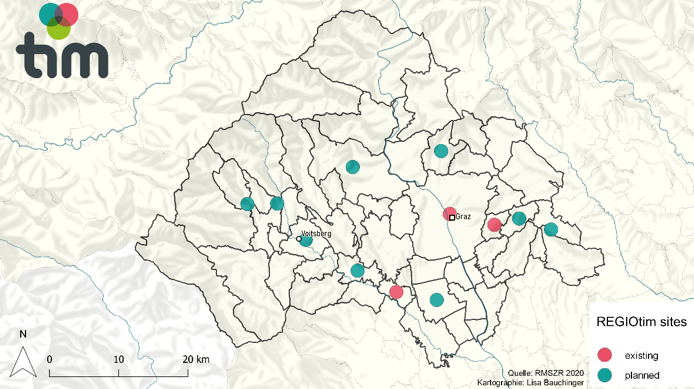
Important outcomes of a Community of Practice are mutual engagement and to collectively develop a shared repertoire. Since the last ROBUST meeting (November 2019), the CoP has met online periodically to exchange information and discuss the CoP’s working agendas. To deepen the previous exchange of experiences, each participating Living Lab prepared several Good Practice Examples. These brief case studies provide a good foundation for mutual learning by exchanging experiences between Living Labs and offering a basis for adaptation to other regions. To date, 22 Good Practice Examples have been developed (links below); additional examples will be added over time. All of the Good Practice Examples are permanently catalogued in the Publication Library.
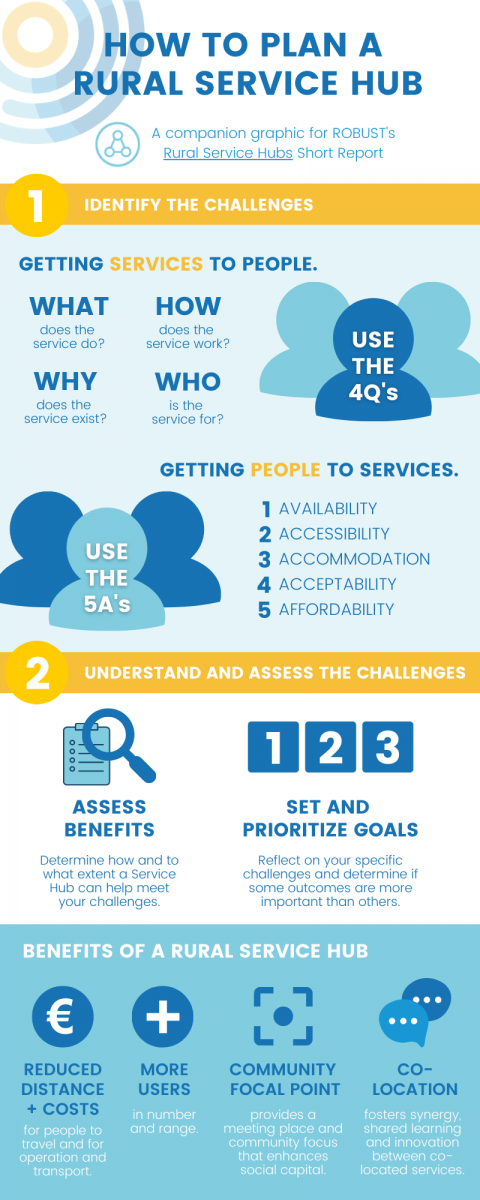
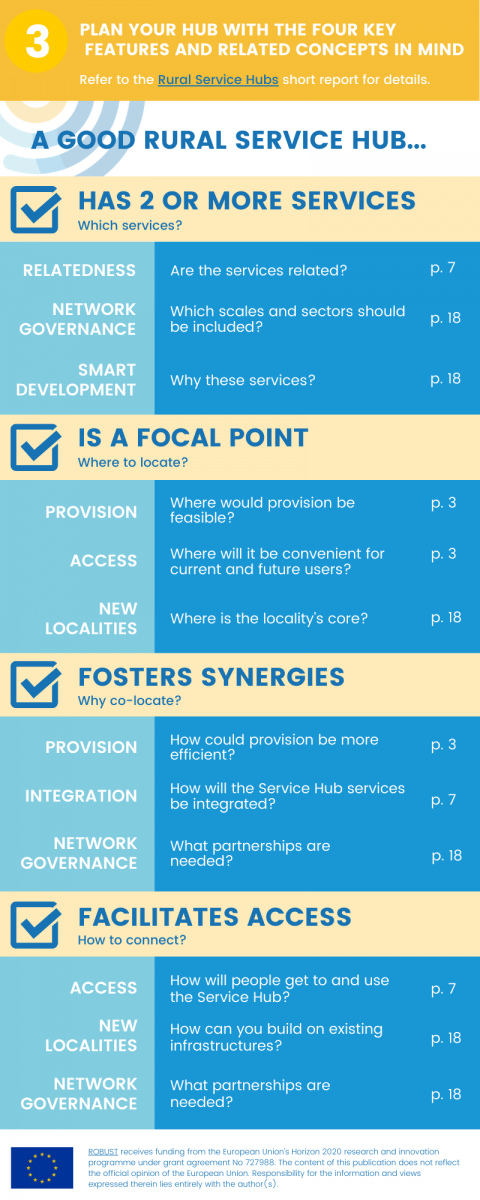
ROBUST’s Living Labs have identified a number of good practices for rural service hubs, drawn from real examples. This Short Report offers nine case studies from five countries, covering services from food retail to community support, transport and digital connectivity to banking and healthcare. The case studies show that there is no single model for a service hub – but plenty of opportunity for innovation. Service hubs are not a new idea, but through conscious design, combined expertise, partnership and cooperation, and community input, hubs can provide fresh solutions for rural areas. ROBUST’s report offers practical guidance and simple tools for planning or developing a hub, along with inspiration from the Living Labs.
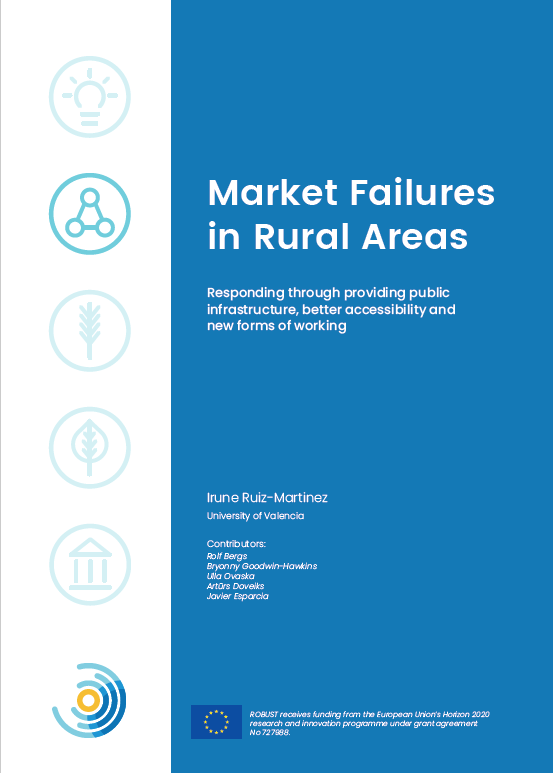
This Short Report from the Public Infrastructure and Social Services Community of Practice addresses rural market failure examples and potentially new governance arrangements in the Frankfurt/Rhein-Main, Helsinki, Mid Wales, Tukums and Valencia Living Labs. The report covers:
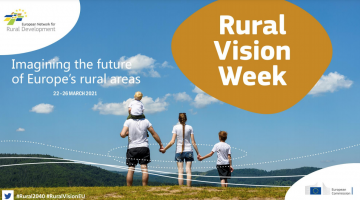
A new vision for the future of rural areas in the EU is underway, spurred onward by ENRD’s recent…

…

Modern lives are increasingly multilocal – but rural-urban policies are often yet to catch up. ROBUST’s…
News about Rural-Urban Europe and the ROBUST project is published regularly in the INFORMED CITIES newsletter.